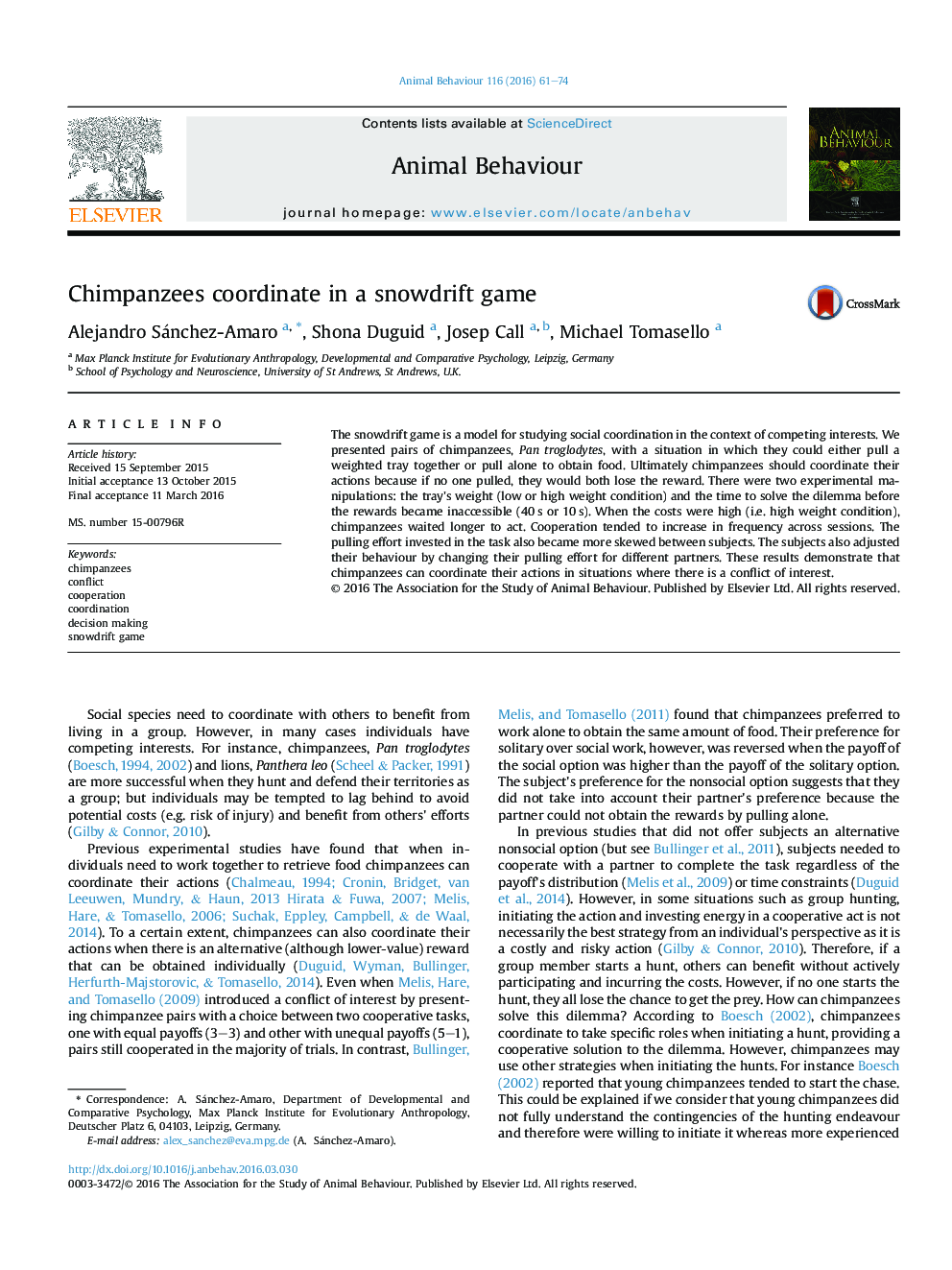| Article ID | Journal | Published Year | Pages | File Type |
|---|---|---|---|---|
| 8489008 | Animal Behaviour | 2016 | 14 Pages |
Abstract
The snowdrift game is a model for studying social coordination in the context of competing interests. We presented pairs of chimpanzees, Pan troglodytes, with a situation in which they could either pull a weighted tray together or pull alone to obtain food. Ultimately chimpanzees should coordinate their actions because if no one pulled, they would both lose the reward. There were two experimental manipulations: the tray's weight (low or high weight condition) and the time to solve the dilemma before the rewards became inaccessible (40Â s or 10Â s). When the costs were high (i.e. high weight condition), chimpanzees waited longer to act. Cooperation tended to increase in frequency across sessions. The pulling effort invested in the task also became more skewed between subjects. The subjects also adjusted their behaviour by changing their pulling effort for different partners. These results demonstrate that chimpanzees can coordinate their actions in situations where there is a conflict of interest.
Related Topics
Life Sciences
Agricultural and Biological Sciences
Animal Science and Zoology
Authors
Alejandro Sánchez-Amaro, Shona Duguid, Josep Call, Michael Tomasello,
